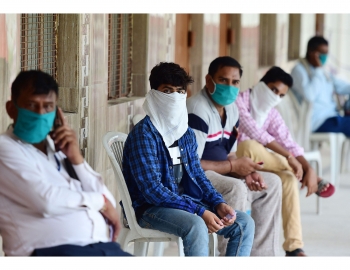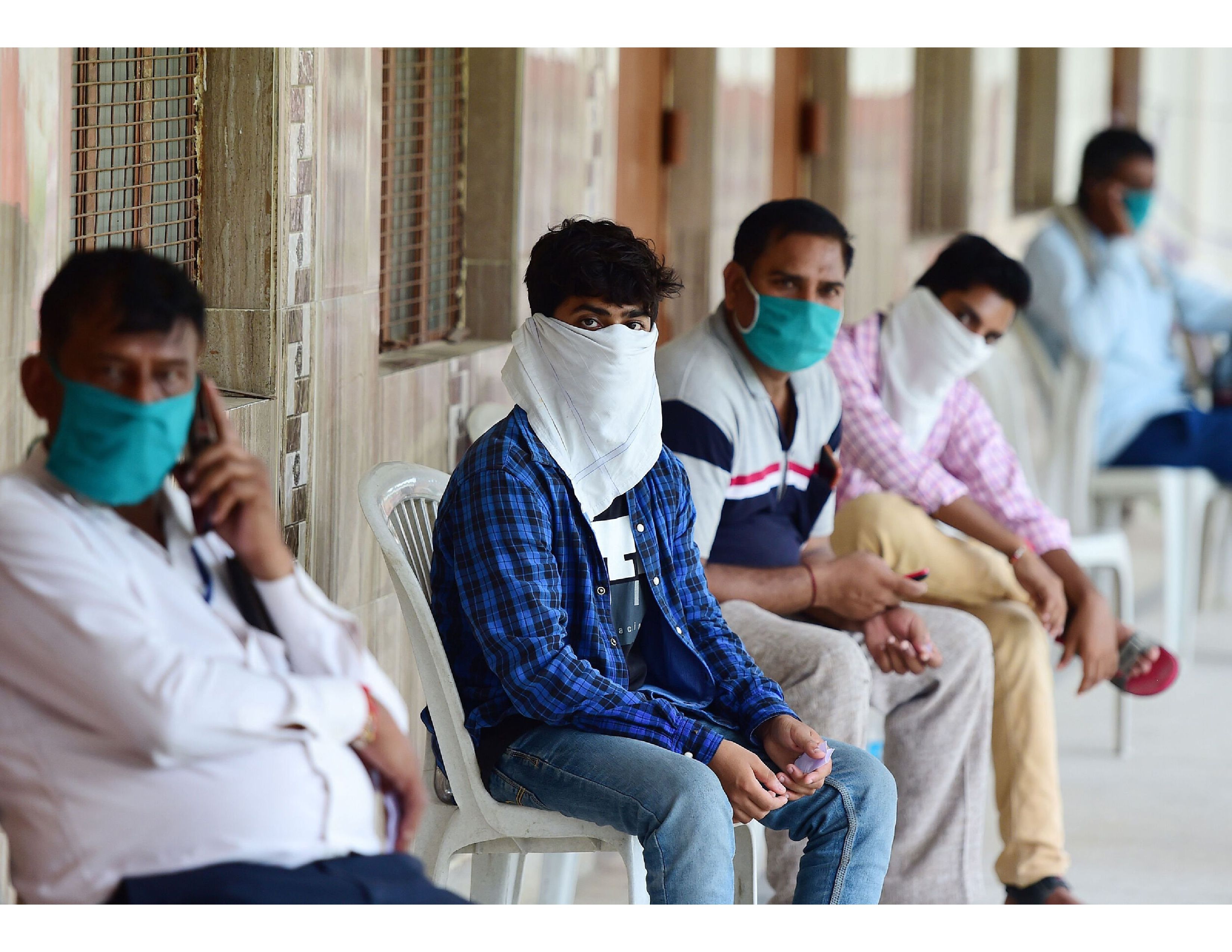
.png) Aarti
Aarti

According to a report in the Hindustan Times, the Central Government has started a campaign dubbed Mission 100 Days, effective this October 11, to control the spread of Covid-19 infections during the festive season.
The initiative is laudable. More so because, ever since its outbreak in mid-December 2019, the Novel Coronavirus, as it was initially called, has been literally devastating the world and India is no exception.
First noticed in a seafood market in Wuhan city of Hubei Province, China, the virus spread to nearly 114 countries across the globe with 118,000 cases by the time it was declared a pandemic by the World Health Organisation on 11 March 2020. Most common symptoms of the disease included fever, cough, tiredness and loss of taste or smell. Patients with serious symptoms were found to experience difficulty breathing or shortness of breath, loss of speech or mobility, or confusion and chest pain.
Well, it is simply nightmarish even to revisit the days gone by. Be it the nation-wide lockdowns, recurring sounds of ambulance sirens, death of near and dear ones etc. Amidst multifarious challenges, India managed to contain the virus in the first wave in early 2020 through various interventions even as COVID-19 cases reached mind boggling heights in the country.
From day one, the Union Ministry of Home Affairs has been reaching out the States and Union Territories with its regular advisories starting from 24 March 2020 to deal with a faceless disease that was hard to fight against in the absence of any vaccine. It started with a very small number of infected people but it spread due to a plethora of factors and reached the peak six months later, leaving tens of thousands of people dead.
Finally, there was light at the end of the tunnel when Prime Minister Mr Modi launched the first phase of the vaccination programme on 16 January 2021 primarily meant for health workers, frontline warriors including police, paramilitary forces, sanitation workers etc. Close to 1.6 lakh people were vaccinated on the first day. The two-dose vaccination has been provided to 96 crore citizens so far. While 73 per cent of people have received the first dose, 29 per cent have received both doses.
Let’s for a moment visit the specific advisory of the Ministry of Home Affairs issued on 26 March 2021 to States and Union Territories well in advance for effecting necessary measures to regulate crowds during festivals like Holi, Shab-e-Barat, harvesting festivals, Easter, Eid-ul-Fitr, etc., by ensuring strict observance of COVID appropriate behaviour, such as wearing of mask and maintaining social distancing.
Then came the second wave of COVID-19 infections in April 2021 which hit like a Tsunami. Getting hospital beds, key medicines and oxygen was a challenge in many places.
The second wave, according to the Indian Council of Medical Research chief Dr Balram Bhargava was less severe than the previous one in as far as fatalities are concerned. But the only difference being the shortness of breath was higher among the patients who required higher levels of oxygen. Reportedly, during the peak of the second wave there was a sudden decrease in the oxygen saturation of some patients, even when they were recovering well, giving less time for the proper ventilation support. Many cases of mucormycosis, also known as the black fungus, were reported in patients with diabetes.
The Mission 100 Days, supplements an advisory issued by the Ministry of Home Affairs dated 28 September 2021 which, among others, had cautioned that as the absolute case numbers are still significantly high, there should be no room for complacency and the process of relaxing restrictions should be carefully calibrated. Importantly, the emphasis is that COVID Appropriate Behaviour is adhered to in all crowded places, in view of upcoming festivals.
The cause for concern is that a large number of people seem to be callous by failing to wear face masks, which greatly protects against the spread of COVID-19. In Delhi alone according to reports, more than 2.4 lakh people have been caught between 19 April to 31 August this year for not wearing face masks. At least 1,100 people continue to be caught every day for not wearing masks. Over 28,000 challans have been issued against people for violating social distancing norms in public places and 1400 challans against groups for holding large gatherings or protests.
It is so shocking that a survey released last week by LocalCircles, an online polling platform for governance issues of public interest, found that while 6 per cent of respondents said people in their localities were following “good social distancing compliance”, 94 per cent found it “limited” or non-existent. With regard to wearing masks, only 13 per cent said the norms were being followed by “over 90 per cent” of people around them.
Why don’t people follow rules? According to Prof Fay Short, a psychologist at the Bangor University, UK, there are three kinds of rule-breakers. The first are those who do not know what the rules are - partly because guidance has changed over time and in different areas. The second type of people are those that don't think rules are important. The third set of people seem to reason that since none of their family members have had it, you're not in touch with it, and therefore it seems distant and something that happens to somebody else.
So, the writing on the wall is pretty clear. In dealing with a highly infectious disease like COVID-19, precautions are a must. As crowded spaces are fertile ground for disease transmission, it is important to ban crowding, especially in closed spaces, since it has been found that the disease is airborne. Festivities are important. Nonetheless, utmost caution can help to keep the virus at bay.
At the grass root level, there is an imperative need for awareness generation among the citizens at the society and household levels so that it becomes a collective effort to keep the dreaded virus under check.
Better to be safe than feel sorry afterwards.